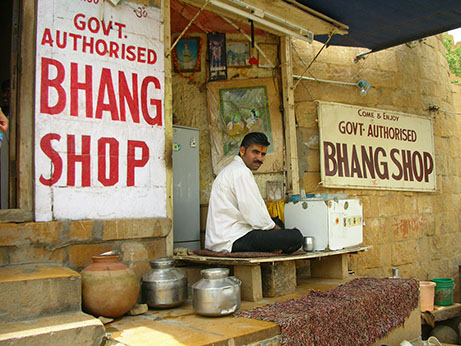A Topeka hemp store is suing the state of Kansas after local cops raided them on 4/20 for selling federally-legal delta-8 THC products.
Last December, Kansas Attorney General Derek Schmidt issued an official opinion that effectively prohibited most products containing delta-8 THC and other psychoactive hemp-derived cannabinoids from being sold anywhere in the state. This year, Shawnee County cops decided that the unofficially official 4/20 cannabis holiday was the perfect time to enforce this ban. Amid holiday sales, cops raided Guardian MMJ and several other hemp stores in the Topeka area.
Guardian’s owner, Murray Dines, claimed that the cops seized $120,000 worth of product from his store during the raid. After the raid, Dines closed his Topeka location for good and relocated to Lawrence, a smaller town that took a more relaxed view towards hemp. “We were welcomed in, no problem,” Dines told KSNT. “Unfortunately, Shawnee County and Topeka are not as progressive with taking the steps that the community wants or needs.”
Now that his new location is open for business, Dines is working to fight the state’s delta-8 restrictions. The business owner just sued Kansas Gov. Laura Kelly, AG Schmidt, and another local prosecutor, arguing that the local delta-8 ban violates both state and federal law. The lawsuit requests an injunction that would block cops, lawmakers, and prosecutors from adopting Schmidt’s interpretation of federal hemp regulations.
The legal battle centers on the specific language of the 2018 Farm Bill, which federally legalized the production and sale of hemp and hemp-derived cannabinoids. This law officially sanctions the sale of all cannabis plants and derivatives, as long as they contain less than 0.3% delta-9 THC – the intoxicating cannabinoid found in marijuana. Crafty scientists soon figured out ways to create delta-8 and other psychoactive cannabinoids out of legal hemp, though, and these products are now being sold everywhere in the US.
Schmidt’s opinion asserts that all hemp products are only legal if the total amount of all kinds of THC combined does not exceed 0.3%. The actual wording of the Farm Bill only specifically imposes a limit on the content of delta-9 THC, and not other kinds of THC, though. A US appeals court recently ruled that this specific wording makes delta-8 and other hemp-derived THC isomers federally legal, even if Congress did not intend to legalize them.
The lawsuit argues that Schmidt’s opinion is inconsistent with federal law because it attempts to set limits on THC isomers that are legal under the Farm Bill. Federal law also prohibits states from creating their own definition of hemp that differs from the US government’s official definition. And finally, the Kansas Commercial Industrial Hemp Act, which establishes rules for the state’s hemp industry, promises to implement state regulations “in the least restrictive manner” possible.
“Therefore, any downstream product made from hemp, any hemp derivative, cannabinoid, isomer, acid, salts or salts, that has a delta-8 THC concentration of any amount, is a legal product derived from hemp,” the lawsuit argues, according to The Topeka Capital-Journal.
Most states have already voted to ban products containing delta-8 and related cannabinoids, and hemp producers in Texas and many other states are already suing over these bans. Some lawmakers are beginning to recognize the obvious fact that regulation is far more effective than prohibition, though, and Louisiana and Minnesota are already working to legalize and regulate sales of delta-8 and other hemp THC products.











